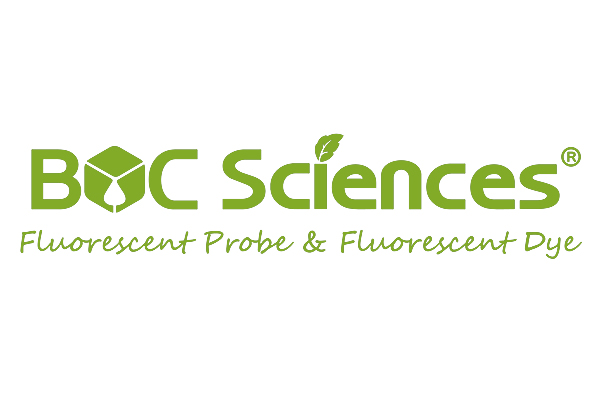
6-Methoxy-N-(3-Sulfopropyl)Quinolinium | CAS 83907-40-8
| Catalog Number | A14-0128 |
| Category | Calcium, Chloride and Other indicators |
| Molecular Formula | C13H15NO4S |
| Molecular Weight | 281.326 |
* Please be kindly noted products are not for therapeutic use. We do not sell to patients.
Product Introduction
A water-soluble quinolinium dye used as an anion/Cl⁻ indicator. Suitable for live-cell imaging and ion transport studies-purchase online.
Chemical Information
Product Specification
Application
Computed Properties
Patents
| Synonyms | 6-Methoxy-1-(3-sulfopropyl)quinolinium Inner Salt; SPQ |
| IUPAC Name | 3-(6-methoxyquinolin-1-ium-1-yl)propane-1-sulfonate |
| Canonical SMILES | COC1=CC2=C(C=C1)[N+](=CC=C2)CCCS(=O)(=O)[O-] |
| InChI | InChI=1S/C13H15NO4S/c1-18-12-5-6-13-11(10-12)4-2-7-14(13)8-3-9-19(15,16)17/h2,4-7,10H,3,8-9H2,1H3 |
| InChIKey | ZVDGOJFPFMINBM-UHFFFAOYSA-N |
| Signal | Warning |
| GHSHazardStatements | H315 (100%): Causes skin irritation [Warning Skin corrosion/irritation] H319 (100%): Causes serious eye irritation [Warning Serious eye damage/eye irritation] H335 (100%): May cause respiratory irritation [Warning Specific target organ toxicity, single exposure; Respiratory tract irritation] |
| Precautionary Statement Codes | P261, P264, P264+P265, P271, P280, P302+P352, P304+P340, P305+P351+P338, P319, P321, P332+P317, P337+P317, P362+P364, P403+P233, P405, and P501 (The corresponding statement to each P-code can be found at the GHS Classification page.) |
6-Methoxy-N-(3-Sulfopropyl)Quinolinium, commonly known as SPQ, is a versatile fluorescent probe with diverse applications in both biological and chemical research. Here are four key applications of SPQ:
Intracellular Ion Sensing: SPQ is a crucial tool for measuring chloride ion concentrations within cellular environments. By monitoring the fluctuations in fluorescence levels, researchers can precisely quantify ion fluxes and delve into the role of chloride ions in a multitude of cellular processes. This capability is particularly invaluable for gaining insights into diseases linked to dysfunctions in ion channels, shedding light on the intricate interplay within cellular systems.
Membrane Potential Studies: Leveraging its unique fluorescent properties, SPQ emerges as a valuable asset in investigating changes in membrane potential. Through the analysis of fluorescence intensities, scientists can delve into the dynamic activities of ion channels and transporters in real time, offering a deeper understanding of neuronal signaling and cardiac physiology. This application is pivotal for unraveling the complexities of cellular communication and physiological responses.
Environmental Monitoring: In the realm of environmental sensing, SPQ plays a pivotal role in detecting chloride levels in water samples with exceptional sensitivity. Its capability for precise monitoring enables the accurate tracking of chloride contamination in ecosystems and industrial effluents, contributing significantly to environmental protection and fostering adherence to regulatory standards. This application underscores the importance of advanced tools in safeguarding our natural surroundings.
Pharmacological Research: Within the realm of drug development, SPQ serves as a valuable ally in screening compounds that modulate ion channels and transporters, offering a critical evaluation of potential therapeutic agents’ impact on chloride ion movement. By dissecting the effects of candidate compounds, researchers can pinpoint promising drug candidates swiftly, accelerating the discovery and optimization of novel treatments for disorders associated with ion channels. This application stands at the forefront of advancing pharmacological research and therapeutic innovations.
| XLogP3 | 1.4 |
| Hydrogen Bond Donor Count | 0 |
| Hydrogen Bond Acceptor Count | 4 |
| Rotatable Bond Count | 4 |
| Exact Mass | 281.07217913 g/mol |
| Monoisotopic Mass | 281.07217913 g/mol |
| Topological Polar Surface Area | 78.7Ų |
| Heavy Atom Count | 19 |
| Formal Charge | 0 |
| Complexity | 365 |
| Isotope Atom Count | 0 |
| Defined Atom Stereocenter Count | 0 |
| Undefined Atom Stereocenter Count | 0 |
| Defined Bond Stereocenter Count | 0 |
| Undefined Bond Stereocenter Count | 0 |
| Covalently-Bonded Unit Count | 1 |
| Compound Is Canonicalized | Yes |
| Publication Number | Title | Priority Date |
|---|---|---|
| CN-114544566-A | A method for rapid high-throughput screening of natural products with transmembrane transport activity | 2022-01-04 |
| WO-2022232195-A2 | Covalent aptamers | 2021-04-26 |
| WO-2022226282-A1 | Engineering biologics to hpv oncoproteins | 2021-04-22 |
| WO-2022226381-A1 | Diagnostic to support clinical trial matching and exploratory biomarker analyses in cancer patients | 2021-04-22 |
| WO-2022221693-A1 | Aluminosilicate nanoparticle sensors and uses thereof | 2021-04-15 |
Recommended Services
Recommended Articles

- Hoechst Dyes: Definition, Structure, Mechanism and Applications
- Mastering the Spectrum: A Comprehensive Guide to Cy3 and Cy5 Dyes
- Fluorescent Probes: Definition, Structure, Types and Application
- Fluorescent Dyes: Definition, Mechanism, Types and Application
- Coumarin Dyes: Definition, Structure, Benefits, Synthesis and Uses
- Unlocking the Power of Fluorescence Imaging: A Comprehensive Guide
- Cell Imaging: Definitions, Systems, Protocols, Dyes, and Applications
- Lipid Staining: Definition, Principles, Methods, Dyes, and Uses
- Flow Cytometry: Definition, Principles, Protocols, Dyes, and Uses
- Nucleic Acid Staining: Definition, Principles, Dyes, Procedures, and Uses
Recommended Products
Online Inquiry



![1-(3',6'-bis(ethylamino)-2',7'-dimethyl-3-oxospiro[isoindoline-1,9'-xanthene]-2-yl)-3-phenylurea](https://resource.bocsci.com/structure/957493-98-0.gif)




![2-amino-3',6'-dihydroxyspiro[isoindoline-1,9'-xanthen]-3-one](https://resource.bocsci.com/structure/98907-26-7.gif)




